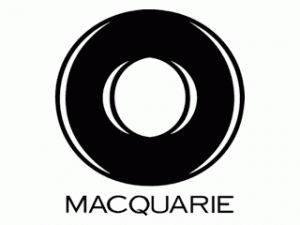 The Macquarie deal is really good. I have doubts that UTOPIA cities are going to get a better offer at all, and the odds that any other offer would even have a chance of paying any of the existing bond debt are very slim. That said, there are things that all city councils should work on to make sure this is the best deal possible. Here’s what I think they need to do.
The Macquarie deal is really good. I have doubts that UTOPIA cities are going to get a better offer at all, and the odds that any other offer would even have a chance of paying any of the existing bond debt are very slim. That said, there are things that all city councils should work on to make sure this is the best deal possible. Here’s what I think they need to do.
Specify speed increases on the basic tier
Including a basic tier of service seems to be a must-have now that Google Fiber has done it. I think the included tier is a pretty good deal overall, but the contract must specify a rate at which those speeds will gradually increase. The FCC already defines broadband as 4Mbps/1Mbps service. It’s rumored that they’re going to bump that to 10Mbps/3Mbps Real Soon Now(TM). I don’t think the basic tier should necessarily match what the FCC calls broadband, but it certainly can’t sit at 3Mbps/3Mbps forever. Make sure the speed increases are built into the contract, potentially as a function of the FCC definition (i.e. 75% of FCC broadband downstream speeds for upstream and downstream).
Specify increases in the transfer cap on the basic tier
A lot of people got riled up over the 20GB cap on the basic tier, but for someone who’s doing really basic usage, that’s actually pretty good. That’s 100 hours of YouTube a month or 30 hours of SD Netflix. Most people on the basic tier probably won’t be using very much anyway. That said, the cap needs to rise with time just like the speeds. 20GB is good today. What if it’s not good enough tomorrow? Make sure the contract specified that it will increase.
Require providers to fully disclose the terms of transfer caps
While we’re speaking of transfer caps on the basic tier, I think we also need to get ISPs to be VERY clear and up-front about how they handle the cap. The spectre has been raised that a hard cap could mean that someone loses their VoIP E911 service when the cap runs out. It could mean big overages. All of these terms need to be up-front. Providers should disclose if they have no caps, a soft cap (with the terms of the penalties for repeated overages), or a hard cap (with transparent pricing on purchasing additional transfer). Anything less would not be acceptable.
Require all revenues to pay down the bond debt and utility fee
City councils should already be prioritizing revenues from the system to go towards first paying the bond debts and then reducing the utility fee. Should. Citizens need to make sure that they codify that this is how they’re going to actually do it. This removes the threat that revenues from the system will flow into the general fund and the full utility fee will be assessed to residents. That would be completely unacceptable.
Try to assess the utility fee on users only
Cities are free to figure out how to collect the utility fee from residents and businesses. Macquarie has suggested “everyone pays” as the model. That kind of stinks since the entire point of the UIA was to shift costs from taxpayers to subscribers, but it’s a hard reality of how city finances work, because of the financial struggle is that companies like forbrukslån try to give people a better option. If cities can get the net utility fee low enough, they should seriously consider assessing it to network subscribers only. In the unlikely event that the income covers both the utility fee AND the bond payments, those who paid should be first in line for rate reductions to be made whole. Once the bonds are paid off, those who paid should also be first in line for reaping the benefits.
Conclusions
City councils are the ones ultimately in the drivers seat on these items. The first three need to be hammered out in the Milestone Two proposal. It’s entirely possible that some of them have already brought up one or more of these points. The final two, however, are entirely up to them. And it’s entirely up to you to let them know that’s what you want too.
 Murray joins Payson and Lindon in declining to move forward with the proposal from Macquarie. The council voted unanimously to pass despite not really having any other workable options on the table. Of course, they’re now in a heck of a pickle: Murray has attracted numerous businesses to the city (including a new location of the Moran Eye Center) with UTOPIA, but they’re running the risk of the network going dark if they won’t cover any operational shortfalls.
Murray joins Payson and Lindon in declining to move forward with the proposal from Macquarie. The council voted unanimously to pass despite not really having any other workable options on the table. Of course, they’re now in a heck of a pickle: Murray has attracted numerous businesses to the city (including a new location of the Moran Eye Center) with UTOPIA, but they’re running the risk of the network going dark if they won’t cover any operational shortfalls.









